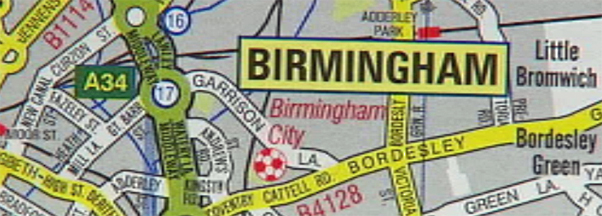Predictive policing: tackling crime in advance
A British idea, developed in the United States, uses computer modelling to predict where crime is going to take place. Now UK police are trialling the method in Manchester and Birmingham.
It’s one thing to police a crime hotspot. Police react to something happening. Officers are despatched to survey and preserve the scene and to provide public reassurance.
But now supposing instead of trying to catch a burglar or thief, you could prevent them from doing it. In other words you could stop more from people becoming victims of crime.
That is about to be trialled in the West Midlands for the first time on a city-wide scale, where officers are to be deployed in places where crime in likely to occur.
The force is to roll out a strategy of what’s termed “predictive policing” across the entire population of Birmingham.
Half of the 40 policing wards or districts will receive this style of policing, and the other 20 will be used as a control for this experiment.
It’s been tried in Greater Manchester already but only in one ward, Trafford. The results were impressive: a 26 per cent drop in burglary against a city-wide fall of just 9 per cent between May 2010 and May 2011.

Similar results have been obtained 5,000 miles away in Santa Cruz, in California.
Police and analysts there have processed three years of data of past crimes in order to come with a computer algorithm which can accurately forecast when and where offenders are most likely to commit crime, and then use an officer’s time more efficiently.
It’s not quite the Tom Cruise movie Minority Report. There, the method was to anticipate an individual’s behaviour and thinking.
In the real world. It’s about analysing human behaviour on a far bigger scale.
Researchers at University College, London, when drawing up the prediction formula, found remarkable parallels between the behaviour of burglars, car thieves and insurgents in Iraq who plant bombs.
Given the scale of police cuts here, you might expect such evidence-based methods to be welcomed with open arms. Not so. Government officials and some senior officers remain quite sceptical. They think there are too many factors affecting crime.
But in the words one senior law enforcement officers, hotspot policing is a blunt instrument compared to computer-based predictive policing. The problem, he says, is that you are no longer in control.